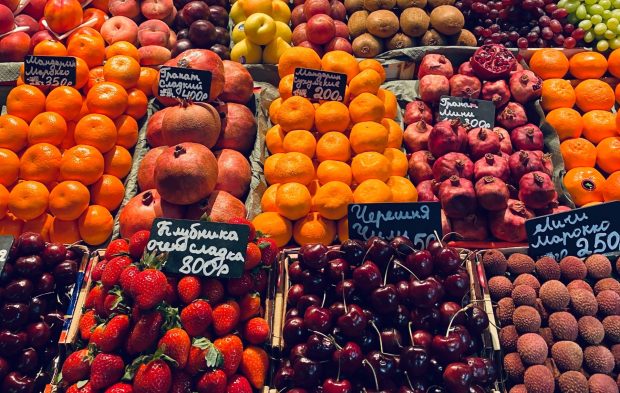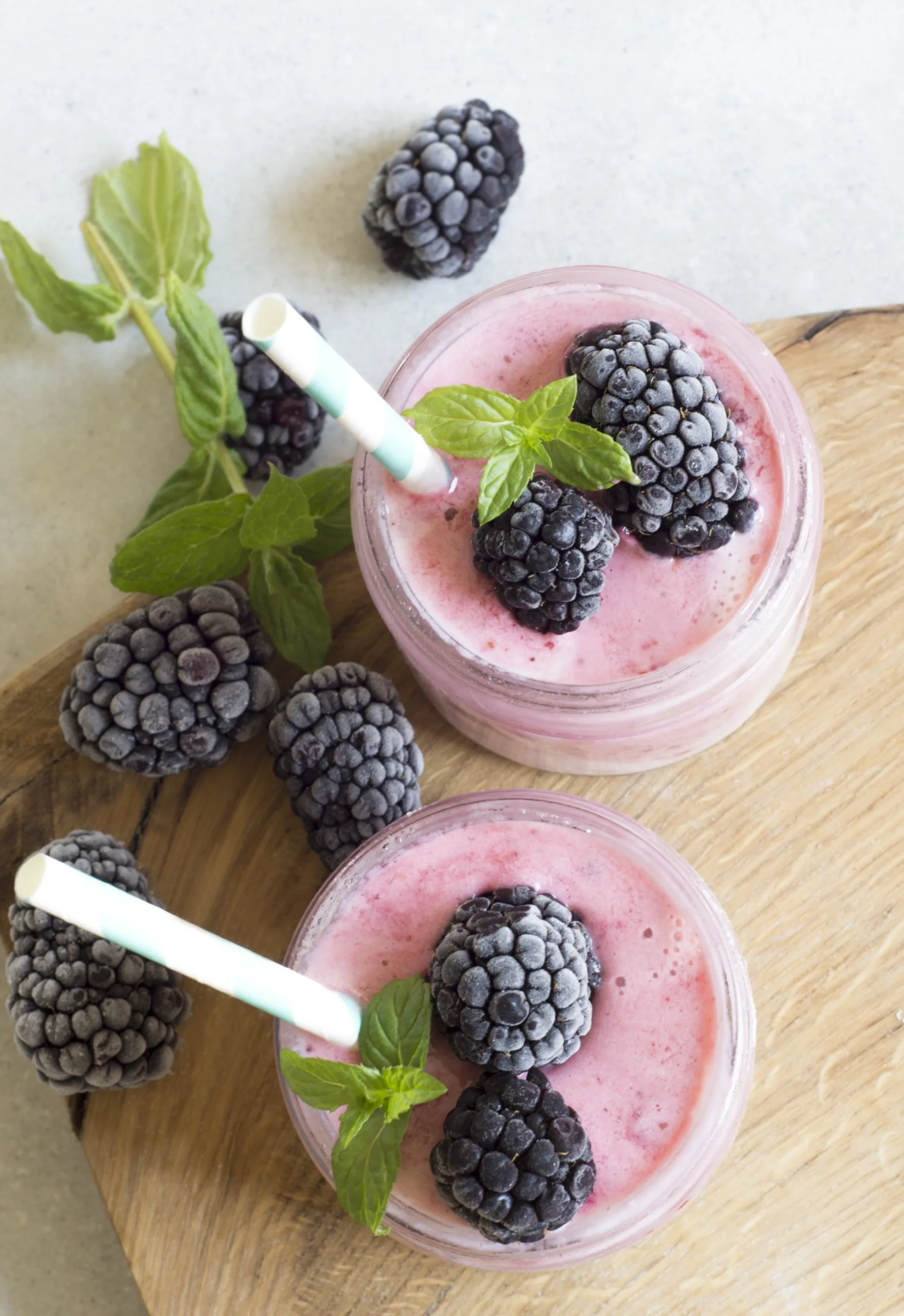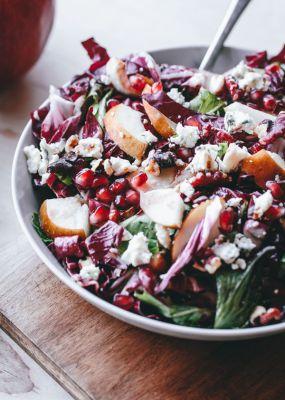According to a Harvard analysis, we should be consuming a total of five servings of fruit and vegetables a day. To provide a convenient, easily accessible way to obtain this, frozen fruit has taken the market by storm. In fact, the American Frozen Food Institute reported a 30% increase in consumption during the first year of the coronavirus pandemic. However, there is a debate about whether they are as nutritious as their fresh counterparts. While most consumers believe that fresh produce is higher in nutritional quality than frozen produce, research seems to say otherwise.
The Importance Of Fruits
Diets that are rich in fruit have long been associated with a variety of health benefits, including:
- Lowered risk of disease: Research shows that fruit consumption is associated with a lower risk of many serious diseases, including diabetes, cancer, and heart disease.
- Increased fiber intake: Fiber plays a role in not only keeping your digestive system healthy, but also lowering blood cholesterol, stabilizing glucose levels, and reducing gastrointestinal cancer risk.
- Improved heart health: Due to their potassium content, fruit can reduce the risk of heart disease and stroke. It can also reduce the risk of developing kidney stones, and help decrease bone loss.
- Protecting against cell damage: Fruits are a source of antioxidants, which are responsible for helping your body maintain a balance of free radicals. This helps prevent oxidative stress, which can damage your DNA, and cause joint pain, headaches, and memory loss.
These indicate just how beneficial fruit can be for our overall health. So what’s the difference between frozen and fresh fruit, and which option carries more benefits?
Harvesting Process
According to the Academy of Nutrition and Dietetics, frozen fruits are usually frozen shortly after being harvested. Fruits that are destined to be frozen are picked when they reach peak ripeness when they are at their most nutrient-rich state. They are then individually quickly frozen and packaged under a nitrogen atmosphere, which helps preserve any nutrients that oxygen may degrade.
On the other hand, fresh fruit is typically picked before it ripens, stored in a warehouse, and then transported. This chain of events can significantly reduce nutritional value. The fruit being picked before it ripens may be great for business, but not for its nutritional value. When a plant doesn’t fully ripen, it doesn’t reach its full nutritional potential. So while outward signs of ripening may occur, these fruits won’t have the same nutritional value as their fully ripened counterparts.
The Difference In Nutritional Value
There is a misconception that frozen fruits begin to lose their nutritional value once they’re defrosted. However, this may not be the case. Contrary to popular belief, frozen fruits can be just as nutritious, if not more, than their fresh counterparts.
Increased Nutritional Value
Researchers from Leatherhead Food Research and the University of Chester conducted several tests to compare nutrient levels in frozen fruit and their fresh counterparts that had been sitting in a fridge for three days. Their research found that the frozen samples contained more beneficial nutrients. In fact, ⅔ of cases indicate that frozen fruits contain higher levels of various antioxidants (polyphenols, lutein, and beta-carotene) than fresh fruit.
Food Waste Reduction
According to the Department of Agriculture, the average American family of four wastes about $1,500 in food every year, and throwing away spoiled fruit and vegetables accounts for a large portion of that. According to research published in Plos One, Americans who eat a lot of fruit and vegetables happen to be the most wasteful.
Fresh produce’s short shelf-life ultimately leads to food being thrown out. An example of this is berries. This fruit tends to ripen quickly once harvested, which gives it a short consumption window. It can be very easy to forget about our produce until it’s too late, leading to them getting thrown out. Frozen berries, on the other hand, can be consumed within a maximum period of 8–12 months, which offers a solution to avoid unnecessary food waste.

Photo by Yulia Shinova on Unsplash
Just How Safe Are They?
The American Frozen Food Institute (AFFI) states that frozen fruit is safe and ready to eat from the package, due to its high acidity and sugar levels. This makes it unlikely that harmful bacteria can grow on it at freezer temperature.
To fully establish this, Consumer Reports conducted frozen production tests. They looked for E.coli, listeria, and salmonella, which are all types of bacteria that commonly cause foodborne illnesses. For these tests, they looked at berries, mangoes, peaches, pineapple, and smoothie mixes, among other frozen produce. The food scientists report that they didn’t find any harmful bacteria that could make someone ill. For this reason, they consider frozen fruit to generally be low-risk.
Testing Exclusions
However, it is important to note that their testing didn’t include hepatitis or norovirus. According to Consumer Reports Food Safety Team, from 2017-2021, frozen fruits and vegetables were responsible for more recalls due to listeria, hepatitis A, and norovirus than any other food category. For this reason, it is advised that people who are at high risk for foodborne illnesses (including immunocompromised people, newborns, older adults, and pregnant women) always take precautions.
Which Option Should You Go For?
This is dependent on your individual needs. Fresh vegetables are typically more versatile than frozen ones, but frozen ones require less work. The main objective should be tailoring your choice to your dietary needs, and consuming the recommended daily allowance. At the end of the day, both options are still nutritious, it’s just about finding what works for you.
How To Implement Frozen Fruit Into Your Routine?
Since they don’t need to be washed, peeled, or used fairly soon, frozen fruits can serve numerous purposes. Whether you’re purchasing a single frozen fruit or a frozen fruit mixture, you can use them to liven up any meal or have it as a snack. A few ideas include:
- Smoothies: Frozen fruit serves as a convenient addition to your smoothie, especially since it can be blended as is.
- Freezer pops: Blend slightly thawed fruit with fruit juice. Freeze in ice-pop molds, which provide a healthy alternative to ice cream
- Snow cone: Blend your frozen fruit with crushed ice to make a snow cone
- Sweetener/Cereal Topping: Slightly thawed frozen fruit can be added to your oatmeal, or cereal, acting as a healthy, yet flavorful and nutrient-dense sweetener
- Sauce Topping: Heat frozen fruit in a saucepan over medium heat, and stir occasionally for about 15 minutes, or until the sauce thickens slightly.
Variety is Important
This isn’t to say that you should avoid fresh produce. It is advised that we have a variety of types and sources of fruits, including both fresh and frozen produce. Fresh and frozen produce serve different purposes, and one option may be more effective than the other depending on the desired outcome. Ultimately, both options are nutritious and can be beneficial for overall health and well-being.





![women [longevity live]](https://longevitylive.com/wp-content/uploads/2020/01/photo-of-women-walking-down-the-street-1116984-100x100.jpg)









